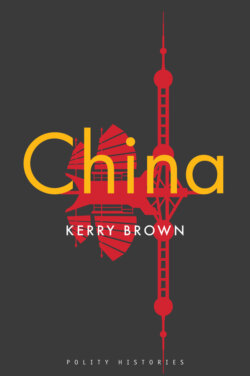Читать книгу China - Kerry Brown - Страница 15
Competing Visions: Sun, Chiang, and Mao
ОглавлениеIn the three decades after the collapse of the Qing, China experienced a period of fragmentation, political instability, and intense aggression from outsiders. Most of this was under the Republican government led, eventually, by Chiang Kai-shek. By the 1930s, the country was called the sick man of Asia. Sun Yat-sen, Chiang Kai-shek, and Mao Zedong offered three competing visions of what needed to be done. Sun had spent less than a hundred days as provisional President of China from January to March 1912, but his influence remains to this day. Writing in ‘The Three Principles of the People’, he declared in 1922: ‘Considering the law of survival of ancient and modern races, if we want to save China and to preserve the Chinese race, we must certainly promote Nationalism.’ The key issue was that the Chinese people were disunited:
We ought to be advancing in line with the nations of Europe and America. But the Chinese people have only family and clan groups; there is no national spirit. Consequently, in spite of four hundred million people gathered together in one China, we are in fact but a sheet of loose sand. We are the poorest and weakest state in the world, occupying the lowest position in international affairs; the rest of mankind is the carving knife and the serving dish, while we are the fish and the meat.10
The country’s greatest challenge was its internal disunity. There was no loyalty to the larger notion of a nation. Sun continued: ‘If we do not earnestly promote nationalism and weld together our four hundred millions into a strong nation, we face a tragedy – the loss of our country and the destruction of our race.’11
Chiang Kai-shek, as Sun’s effective successor after the latter’s death in 1925, continued the Nationalist Party’s mission. Writing in China’s Destiny, he declared: ‘Thus the opportunity for the recovery of the nation and the hope of the rebirth of the state are now presented to the citizens of the entire country.’12 Chiang was also keen to address what he called the country’s ‘moral deterioration’. The splendid legacy of a long, continuous civilized history had been degraded by the impact of outsiders in modern times. But Chinese people took ultimate responsibility for this. Foreigners had exploited weaknesses which were already present:
The [foreign] concessions were not only the source of drugs, but were havens for prostitutes, gamblers, thieves, and bandits. When economic conditions in the interior were poor, the people migrated to the cities. But it was difficult to find employment and they were therefore forced to sell their sons and daughters and fell into the evil habits of prostitution. Thus, during the past hundred years, beautiful and prosperous cities became hells of misery and chaos.13
In this account, Chinese people had thus betrayed their own history and their identity and moral values.
Chiang’s commitment to nationalism chimed with that of Communist leader Mao Zedong, though their diagnosis of their country’s problems and how to solve them radically differed. Mao had adopted a sinified Marxist-Leninist analysis of why the country was in such poor shape after the collapse of the Qing, and how it would get out of this. Despite being from a similar background to Chiang, as the son of a reasonably well-off landlord, Mao set himself against the Confucian traditions of order and hierarchy that Chiang seemed to embrace. For Mao, these were the problem, not the solution. Marxist dialectics gave him the tools to analyse Chinese history as a story not of moral decline and victimization by foreigners, but instead of the clash between different classes internally, and the rising influence of powerful capitalist forces, many of them coming from outside actors like companies or governments. This was history with a scientific rationale, with a structure that was determined and predictable. The feudalist past was now moving towards a socialist, utopian outcome. As Mao wrote in 1939: ‘The extreme poverty and backwardness of the peasants resulting from ruthless landlord exploitation and oppression is the basic reason why Chinese society remained at the same stage of socio-economic development for several thousands of years.’14 He continued: ‘The purpose of the Chinese revolution at the present stage is to change the existing colonial, semi-colonial and semi-feudal state of society, i.e. to strive for the completion of a new democratic revolution.’15 Mao’s China had a destiny, but in contrast to Chiang’s vision, it was one that would be fulfilled through socialism and class struggle, not the spiritual nationalist recommitment to Confucian ethics sponsored by the Nationalist government’s ‘New Culture’ movement of the 1930s.
